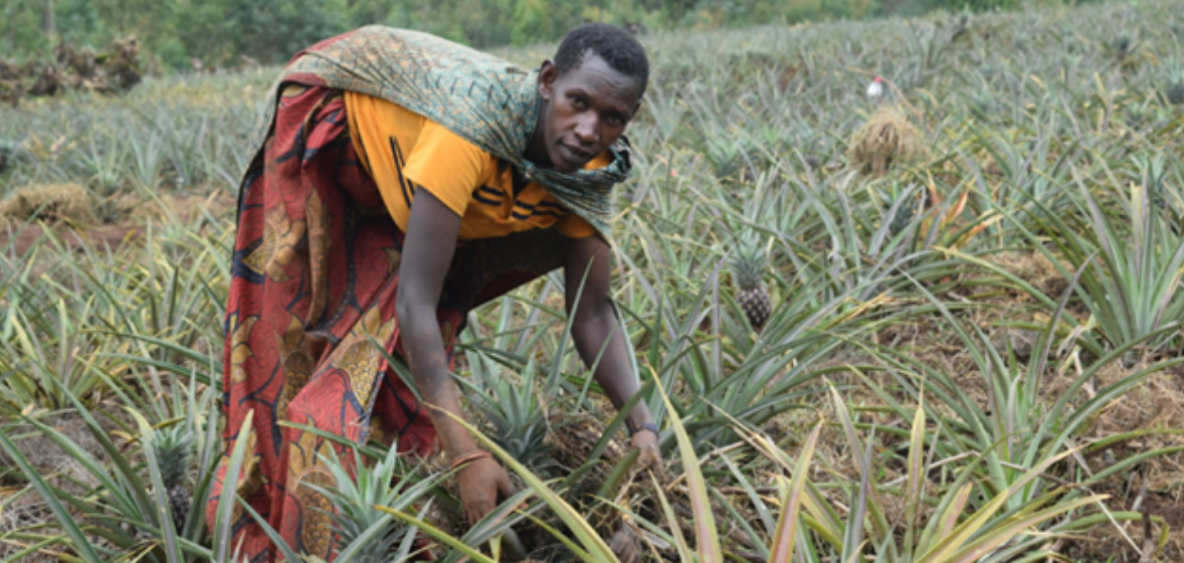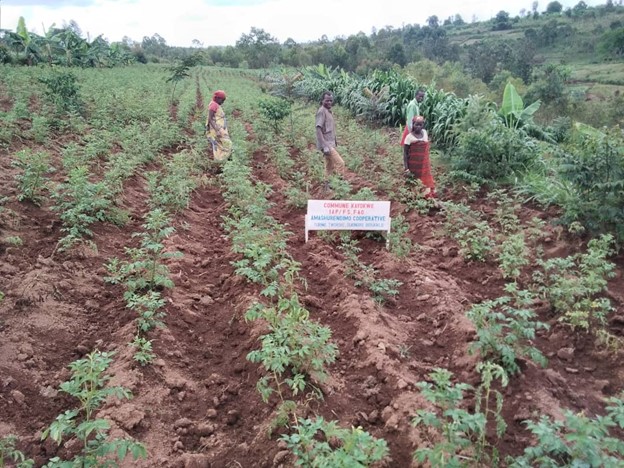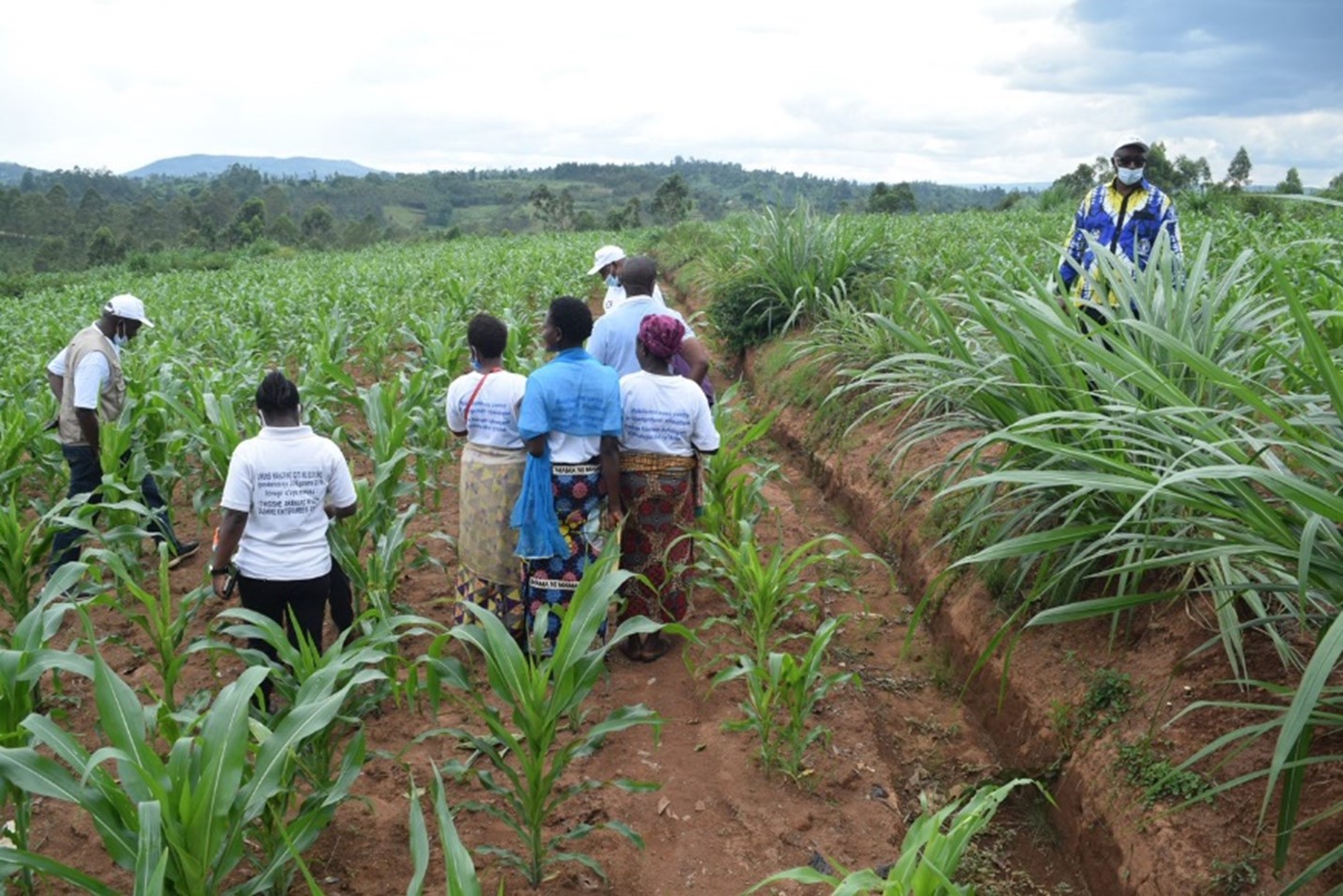 A woman member of the Sangwe-Kibogoye cooperative tending a pineapple field in Mwaro province
A woman member of the Sangwe-Kibogoye cooperative tending a pineapple field in Mwaro province Developing sustainable value chains requires unique methods tailored to different contexts. RFS Burundi is applying an integrated approach to maize, potato, wheat, pineapple, bean and vegetable value chains for resilient food futures.
Agricultural products move through a series of stages before they land on our plates or in our homes, but the length of those chains depends on a variety of factors.
The Resilient Food Systems (RFS) programme has been working with country projects and Regional Hub partners to promote sustainable value chains since its inception. These chains are long enough to provide opportunities for value addition, link to reliable markets and safeguard rural livelihoods.
In short, informal value chains place the effect of shocks entirely on farmers and, in the case of the drylands of Africa, small-scale farmers are already disproportionately vulnerable to shock. Facilitating sustainable value chains means increasing the resilience of rural communities, and if that isn’t at the core of RFS then what is?
RFS has reported on value chain activities at various scales over the years like beekeeping, dairy goats, indigenous chicken, groundnut and rice. Regional Hub partners the Alliance for a Green Revolution in Africa and the United Nations Development Programme also provided catalytic grants to three projects under RFS to strengthen value chains in Uganda, Malawi, Burkina Faso and Tanzania, and produced a training manual for developing resilient and sustainable food value chains.
But what does this look like on the ground in Burundi?
The FAO-led RFS Burundi project, Support for Sustainable Food Production and Enhancement of Food Security and Climate Resilience in Burundi's Highlands, has developed sustainable value chains in the 9 municipalities it works in. Their goal is to facilitate market access and connections between producers and traders, creating a local food systems network that is controlled by communities, and diversifying community livelihoods to increase their resilience.
The criteria the project employs to select target value chains are the following:
In the project areas, the products that most aligned with these criteria are maize, potato, wheat, pineapple, soybeans, beans and vegetables.

To foster long-term sustainability of the value chains, RFS simply provides the supports necessary for communities to develop them, manage them, and maintain ownership over them. Community co-operatives are capacitated on everything from storage techniques to seed development to marketing through Farmer Field Schools.
So far in Burundi, the RFS project has helped establish 39 cooperatives for maize, 12 for potato, 11 for wheat, 4 for pineapple, 37 for beans and 4 for vegetables.


The RFS team also helps cooperatives gain approval by the National Agency for the Promotion and Regulation of Cooperatives in Burundi which enables them to obtain trade register and tax identification numbers so that they can enter formal markets. Village Savings and Loan Associations also strengthen community bonds and resilience. Between 2020 and 2021, 73% of the loans accessed were by women in the community; an important change since they have traditionally had poor access to credit and financing.
At home, farmers apply learned knowledge on nutrition to better feed themselves and their families while bridging the lean season and looking to locally available food through the 2588 home gardens that have been installed in the project area.
Sustainable value chains require a strong foundation with strong people at its roots.


Subscribe to our monthly newsletter to receive updates on stories directly from the field across all our projects, upcoming events, new resources, and more.